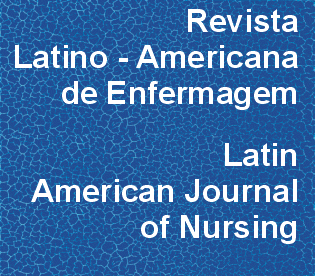Family refusal to donate organs and tissue for transplantation
DOI:
https://doi.org/10.1590/S0104-11692008000300020Keywords:
organ transplantation, brain death, familyAbstract
This study aimed to discover how potential eligible donor families perceive the decision-making process to refuse organ and tissue donation for transplantation. A qualitative research was performed in order to understand the families' perception, based on the situated-phenomenon structure. Eight family members were interviewed, with four themes and fourteen subthemes emerging from the analysis of the statements. The propositions that emerged from the study indicated that the essence of the phenomenon was manifested as a shocking or despairing situation, experienced through the hospitalization of the family member; distrust regarding organ donation; denial of brain death; grief and weariness due to the loss of the loved one, family conflicts for making the decision and the multiple causes for refusing donation. Therefore, the knowledge of this phenomenon can provide information to guide professional action involving the families of potential donors.Downloads
Download data is not yet available.
Downloads
Published
2008-06-01
Issue
Section
Original Articles
License
RLAE’s authorship concept is based on the substantial contribution by each of the individuals listed as authors, mainly in terms of conceiving and planning the research project, collecting or analyzing and interpreting data, writing and critical review. Indication of authors’ names under the article title is limited to six. If more, authors are listed on the online submission form under Acknowledgements. The possibility of including more than six authors will only be examined on multicenter studies, considering the explanations presented by the authors.Including names of authors whose contribution does not fit into the above criteria cannot be justified. Those names can be included in the Acknowledgements section.
Authors are fully responsible for the concepts disseminated in their manuscripts, which do not necessarily reflect the editors’ and editorial board’s opinion.
How to Cite
Moraes, E. L. de, & Massarollo, M. C. K. B. (2008). Family refusal to donate organs and tissue for transplantation. Revista Latino-Americana De Enfermagem, 16(3), 458-464. https://doi.org/10.1590/S0104-11692008000300020



